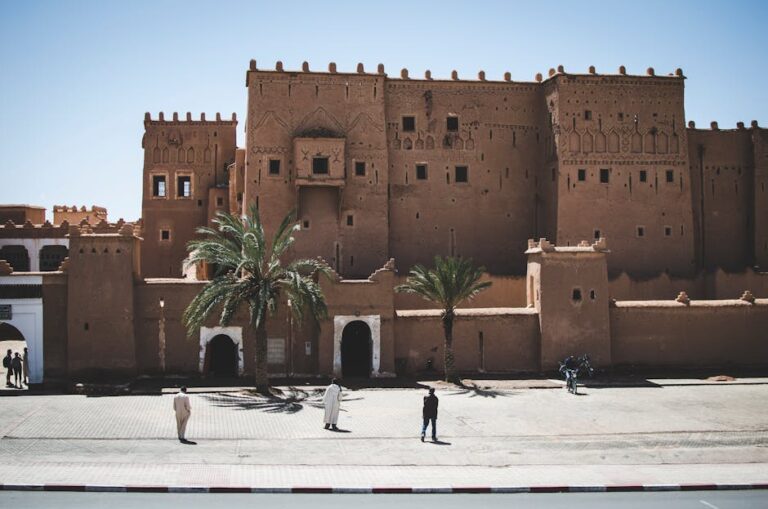Table of Contents
Alright, so picture this. You’re trying to run a business, right? You’ve got people spread out, partners overseas, deadlines breathing down your neck. Then someone drops the bomb: “Oh, by the way, the clocks are shifting again.” Your stomach kinda just… sinks. Every single time. You’d think by now, with all our fancy gadgets and global village nonsense, we’d have figured out a stable clock situation. Guess not. Especially when you’re dealing with a place like Morocco.
For years, Morocco time felt like a bit of a moving target. Used to be GMT, then Daylight Saving Time came in, GMT+1, then they’d ditch it right before Ramadan, then bring it back. My head still spins thinking about it. You’d set up calls for, say, 3 PM Marrakech time, assuming you knew what that even meant that week. Then suddenly, BAM, you’re an hour off. Someone’s always pissed. Either you’re early and waiting, or late and apologizing. Time, it seems, isn’t just a number on a clock. It’s a whole negotiation.
The Real Headache of the Hourly Shuffle
I remember this one time, we had a big content rollout scheduled. We’re talking a worldwide launch, simultaneous. Had teams in california, London, and some freelancers in Rabat. Everything was meticulously planned, down to the minute. The day before, a freelancer emails me, calm as you please, “Just double-checking, we’re sticking with GMT+1 this week, right? Because some local news said…”. Local news. Not an official government memo. I nearly choked on my coffee. This is how you run a global operation? Based on local news whispers? You gotta be kidding me.
It turned out, yeah, the government had just decided, almost on a whim, to not switch back for Ramadan that year. Or maybe they did. It changed so fast, you couldn’t keep up. The whole thing was just a mess. We had to scramble, reschedule calls, push deadlines, all because of a last-minute time zone hiccup. Cost us a pretty penny, too, what with all the overtime and missed opportunities. You think you’re clever, you’ve accounted for every variable. Then “morocco time” pulls a fast one on you.
This isn’t just about a missed meeting. It’s about supply chains, about getting goods from point A to point B on schedule. What happens when your truckers are on a different time than the port authority? What about flights? You think planes just wait around because someone forgot to adjust their wristwatch? Not a chance.
Royal Air Maroc
Consider a company like Royal Air Maroc. These guys are flying internationally, all the time. They’re dealing with ground crews, flight attendants, pilots, air traffic control, all these people in different countries, different time zones, and then, inside Morocco, sometimes it just shifts. An airline’s operations are built on precision. Every minute counts. When the clock changes, even by an hour, it throws a wrench into everything. Gate times, landing slots, crew rest periods, maintenance schedules. All those intricate dance moves suddenly out of sync. You’ve got planes sitting on the tarmac longer than planned, passengers missing connections. It’s a domino effect, every time. I wouldn’t want their job, trying to keep track of that stuff. You’d need a dedicated team just to monitor the Moroccan clock and its whimsical ways.
Are there different time zones within Morocco?
That’s a fair question, I get asked it a lot. No, Morocco operates on a single time zone. Always has. The trick, the real brain twister, is that its offset from Greenwich Mean Time tends to wobble around like a wobbly wheel on an old pushbike. One year it’s one thing, the next it’s something else, then they pause it for a bit, then bring it back. You can never be too sure. It keeps you on your toes, I’ll give it that. Or just gives you a migraine, depending on your disposition.
How does Morocco time affect international business?
Oh, how doesn’t it? Try running a call center from, say, Ireland, providing support to customers in Morocco. You set up shifts for your agents, thinking you’ve got this neat overlap. Then suddenly, Morocco drops an hour for Ramadan, and your perfect overlap is now a gaping hole. Or your agents are sitting there, twiddling their thumbs, while Moroccan customers are still asleep. It’s a logistical nightmare. Every time there’s a change, you’ve got to re-educate your global teams, update calendars, send out stern warnings to “triple-check the time difference, for crying out loud!” My God, it feels like we spend more time talking about when we’ll talk than what we’ll talk about.
Attijariwafa Bank
Think about Attijariwafa Bank, one of the big financial players in the region. They’ve got branches, clients, and partners all over Africa, Europe, even North America. Financial markets, they run on tight schedules. Trades happen by the second. If there’s any confusion about the actual time for a transaction, a wire transfer cut-off, or when a market opens or closes, you’re looking at potentially serious money flying out the window. Or worse, being held up. Imagine telling a client in New York their funds are delayed because the guys in Casablanca adjusted their clocks on a Tuesday morning without proper notice. You just don’t do that in banking. The whole system runs on trust and predictability. When time itself becomes unpredictable, you’ve got a problem. A big one.
Does Morocco observe Daylight Saving Time (DST) anymore?
You want to know something funny? For a while, Morocco did observe DST, switching to GMT+1. But then, in 2018, they decided to make GMT+1 permanent. Just like that. No more switching. Or so we thought. Because then they decided, actually, during Ramadan, they’d revert to GMT. And then switch back after Ramadan. So, yeah, they got rid of DST, but then they brought in a seasonal adjustment for Ramadan, which, for all intents and purposes, is a time shift. It’s like saying you quit smoking, but you still light up for five minutes every morning. It’s confusing as hell. You can never truly relax, can you? Always gotta check what the official word is for this particular month. My old nan in Wales, bless her, used to say, “They don’t know if they’re coming or going.” That’s Morocco time for you.
Port of Tangier Med
Anyone who’s ever dealt with shipping knows it’s a beast. Cargo ships, containers, customs, rail, trucks, it’s all connected. The Port of Tangier Med, it’s a massive hub, a real gateway between continents. You’ve got ships arriving from Asia, leaving for Europe, heading down to West Africa. Every single one of those movements is meticulously timed. Berthing schedules, cargo loading and unloading, customs inspections. You can’t have a container ship showing up thinking it’s one o’clock when the dockworkers finished their shift an hour ago because of a time change. That ship costs serious dough sitting idle. Every hour it’s not moving, it’s money lost. For the shipping lines, for the port, for the businesses waiting for their goods. This isn’t some academic exercise in timekeeping. This is real-world cash, real-world delays. It’s enough to make you pull your hair out. The folks coordinating traffic there? They must have spreadsheets the size of football fields, just to keep track of when things are happening.
What’s the best way to handle calls with Morocco for business?
Honestly? You just gotta get used to double-checking. Every single time. You can’t assume anything. I tell my team, “Before you send that calendar invite for a Moroccan meeting, check the official time for that specific week.” Google it, check a reputable world clock site, call someone local if you have to. Better safe than having a no-show on a critical call. Some folks swear by using a shared digital calendar that automatically adjusts, but even those have had their moments of glitchy chaos when Morocco pulled a fast one. It’s a “trust, but verify” situation, but mainly “verify, verify, verify.”
Orange Maroc
Digital connectivity, right? It’s supposed to make the world smaller, make communication instant. Companies like Orange Maroc, they’re providing the backbone for all that. Mobile networks, internet services. You’d think their internal systems would be flawlessly synchronized. But even they, with all their tech know-how, have to deal with the shifting sands of Morocco time. Their network operations centers, their billing systems, their customer service teams — they all rely on accurate time. Imagine a customer’s data plan expiring at midnight, but the system is an hour off because of a recent time change. Suddenly, you’ve got people furious, overcharged, or unable to connect. It hits their bottom line, hits their reputation. It makes you wonder, sometimes, if the sheer amount of energy spent on adjusting and readjusting these basic things could be better used. I mean, we’re talking about time. It’s supposed to be constant, isn’t it? A fixed point. Not a bouncy ball.
When you’re running a website, especially one that publishes content for a global audience, the exact time of publication matters. SEO, content freshness, breaking news — if you say something went live at 9 AM, it better be 9 AM everywhere you claim. Otherwise, your stats are skewed, your audience gets confused, and your whole editorial calendar goes to pot. The things that seem small, like a simple hour adjustment, they add up. They really do. They become this huge pain, just festering under the surface, causing delays and miscommunications you didn’t even see coming.
The thing is, time affects everyone. From the street vendor in Casablanca trying to catch the first bus, to the big international corporations with offices in Rabat and London. It’s a fundamental part of how we organize our lives, how we do business. And when that fundamental thing keeps changing its mind, well, let’s just say it adds a certain… zest, to an already complex world. Some would call it charming. I call it a right pain in the neck. Just tell me what time it is, and stick to it. Please. For the love of all that is holy, just pick a time and stick to it. That’s all anyone really wants. It makes you question, doesn’t it, why some things that should be simple are made so complicated? I’ve seen simpler processes for launching rockets. True story.
Is Morocco time consistent for all businesses and individuals?
Yes, when the official time changes, it changes for everyone across the country. But the ‘consistency’ part, that’s the tricky bit, isn’t it? The changes are consistent, in that everyone experiences them. But the pattern of those changes, especially around Ramadan, has been anything but consistent over the years. So, you’re always checking, always double-guessing. You can’t just set your watch once and forget it for a year, not with “morocco time”. That’s the real kicker. You can plan for a fixed change. You can even plan for a seasonal one that follows a strict pattern. But when the pattern itself is prone to last-minute revisions? That’s when the real fun starts. Or the headaches. Take your pick. Mostly headaches, for me.












